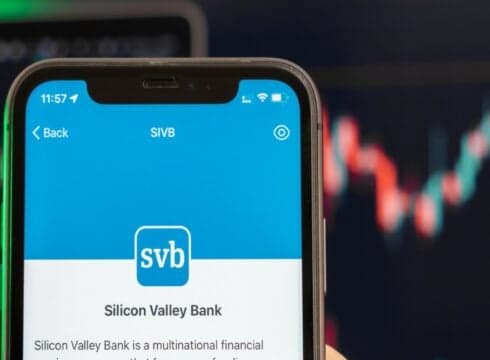The California Department of Financial Protection and Innovation shut down the Silicon Valley Bank after a possible takeover came into the news and startups started withdrawing the money and transferring it to other banks
For Indian startups registering in the US, one of the USPs which SVB used to bring to the table was to allow them to register without a social security number
In case of acquisition by another bank, it’s not necessary that the bank might onboard businesses/customers without social security numbers, this would give jolt to Indian founders
Inc42 Daily Brief
Stay Ahead With Daily News & Analysis on India’s Tech & Startup Economy
Within 24 hours, the US-based Silicon Valley Bank has given another shock to the startup ecosystem globally. While the industry was identifying solutions to escape the panic mode and help startups wire money to different accounts, the California Department of Financial Protection and Innovation shut down the bank.
According to an official release, all insured depositors will have full access to their insured deposits no later than Monday morning, March 13, 2023.
To be noted, an amount less than or equal to $250K is insured by the Federal Deposit Insurance Corporation (FDIC) — an entity appointed by the California Department of Financial Protection and Innovation. Startups can have access to their insured amount by Monday.
With this move, FDIC aims to bring some control to the panic-driven market. On March 8, the bank sold all of its Available for Sale (AFS) securities portfolio worth $21 Bn (at a loss of $1.8 Bn), which panicked the capital markets.
On March 10, trading was halted on SVB stock as talks about a possible takeover came into the news and startups started withdrawing the money and transferring it to other banks. It was also reported that SVB might be in talks with other banks to sell itself in order to raise capital.
Now, in the worst-case scenario, the startups will be entitled to receive at least $250K as an insured deposit. However, for any amount in excess of $250K, the startups will have to contact the FDIC.
This will be another major blow for the startups that have much more reserves in the bank. For example, a company with $13 Mn deposits in SVB would only get back $250K initially until the other bank assets are not dissolved and distributed.
At the same time, there is a high possibility that withdrawals will continue to increase when bank transactions are reopened on Monday. If the situation worsens, Silicon Valley Bank could take another hit.
However, FDIC will not let this happen. More likely, the regulators are expected to bring in another bank to buy all assets and deposits of SVB. The funds may remain frozen for some time, increasing difficulty for the startups.
For Indian startups registering in the US, one of the USPs which SVB used to bring to the table was to allow them to register without a social security number.
In case of acquisition by another bank, it’s not necessary that the bank might onboard businesses/customers without social security numbers, this would give jolt to Indian founders.
“All startups registering in the US require a social security number to operate with any bank. SVB was the only bank that allowed very early-stage startups, particularly in the SaaS sector, to open an account without a social security number. With SVB, they will not be able to move their money at all,” the cofounder of LogiNext Dhruvil Sanghvi said.
This is expected to create another level of panic in the market. Even those who have been putting faith in the bank’s revival may now see Monday as their last chance to withdraw money from SVB.
“This is really a bad situation. Even if the bank is able to revive itself, the trust has gone for a long time which will be difficult to revive,” Sanghvi added.
Read our detailed piece on “Indian Startups & The Silicon Valley Bank Brouhaha to know more.
The Silicon Valley Bank primarily works with venture-backed tech companies. In 2021, global venture funding reached $681 Bn, leading to a sudden rush of huge cash in the hands of the bank. In 2021, SVB saw a mass influx in deposits, which jumped from $61.76 Bn at the end of 2019 to $189.20 Bn at the end of 2021.
However, as deposits grew, SVB could not grow its loan book fast enough to generate the yield it wanted to see on this capital. As a result, SVB purchased a large amount (more than $80 Bn) in mortgage-backed securities (MBS) with these deposits for their hold-to-maturity (HTM) portfolio. Later, the 2022 funding winter further plummeted the fund inflow for SVB, disturbing the balance of fund flows. .
As of December 31, 2022, Silicon Valley Bank had approximately $209.0 Bn in total assets and about $175.4 Bn in total deposits. At the time of closing, the amount of deposits in excess of the insurance limits was undetermined. The amount of uninsured deposits will be determined once the FDIC obtains additional information from the bank and customers.
{{#name}}{{name}}{{/name}}{{^name}}-{{/name}}
{{#description}}{{description}}...{{/description}}{{^description}}-{{/description}}
Note: We at Inc42 take our ethics very seriously. More information about it can be found here.


